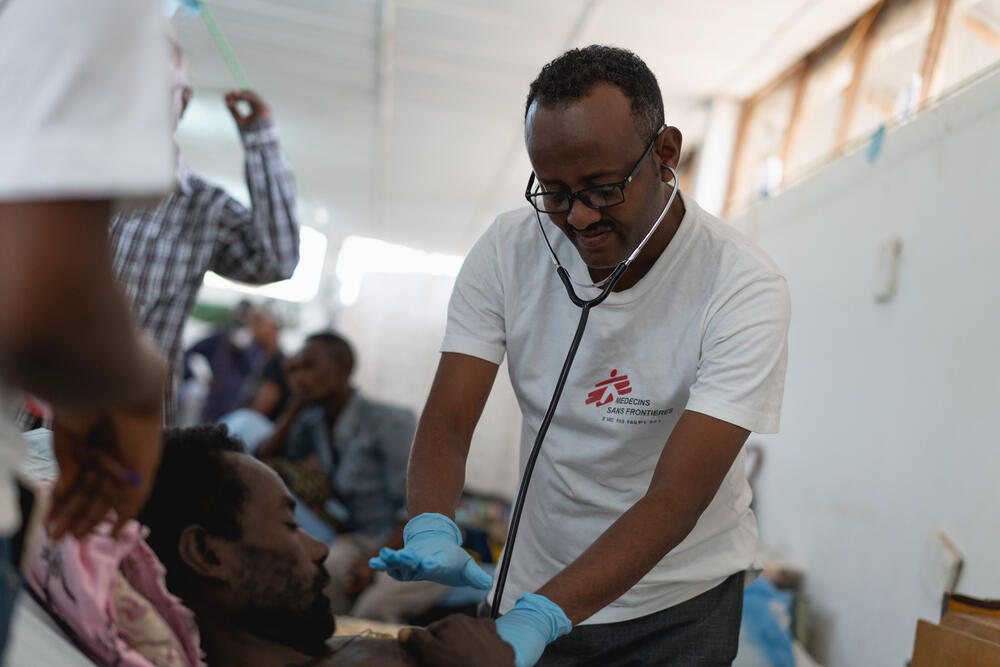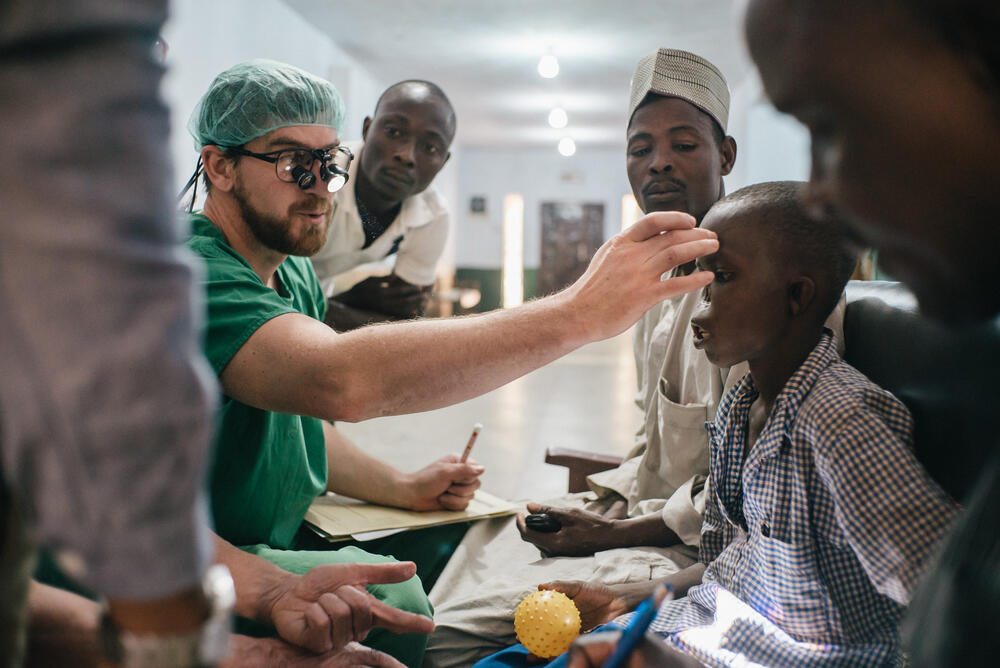Neglected Tropical Diseases: MSF calls for investment to protect people from overlooked deadly illnesses
Each year, more than one billion people are affected by a group of conditions known as neglected tropical diseases (NTDs).
These are illnesses that mainly impact the world’s poorest people – such as noma and snakebite – and so are often overlooked by policymakers. With the fight against NTDs under-resourced and underfunded, hundreds of thousands of lives are lost each year.
To mark World Neglected Tropical Diseases Day on 30 January, Médecins Sans Frontières / Doctors Without Borders (MSF) is demanding a better global response to treat and control NTDs. This includes increasing investment to integrate care for NTDs into basic healthcare services, as well as for research and development for NTD care.
Neglected Tropical Diseases (NTDs) are a diverse group of conditions that mainly occur in tropical areas. They mostly affect communities living in poverty, and women and children disproportionately. More than one billion people are affected by NTDs, as well as their social and economic consequences.
Examples of MSF’s work on specific NTDs include:
- Noma
A devastating facial gangrene that mainly affects children. Survivors can be left with severe disfigurements, life-threatening impairments and the burden of social stigma. The World Health Organisation does not yet recognise noma as an NTD, but MSF and many global health organisations are calling for change. In Sokoto, northwest Nigeria, MSF currently runs the world’s only dedicated noma hospital.
- Snakebite envenoming
A diverse and often complex medical condition that causes more death and disability than any other NTD. Every year, up to 138,000 people die because of snakebites. MSF treats more than 7,000 snakebite patients a year, mainly in the Central African Republic, South Sudan, Ethiopia and Yemen. MSF is calling for increased funding to improve access to quality antivenom and clinical training, which could significantly reduce the number of deaths from snakebites.
- Visceral leishmaniasis (or kala azar)
A life-threatening parasitic infection that has a fatality rate of over 95 percent if left untreated. The condition has nearly been eliminated in South Asia and MSF is working alongside other organisations to eradicate the disease in East Africa. Between 1989 and 2020, MSF teams treated nearly 150,000 patients in South Sudan, Sudan and Ethiopia.
- Sleeping sickness
A deadly parasitic disease that is transmitted by the tsetse fly. Difficult to diagnose at an early stage, as the condition progresses it can cause a range of severe neurological symptoms and the notable inability to sleep at night. Between 1986 and 2019, MSF screened more than 3.5 million people for sleeping sickness and treated more than 50,000 patients across seven countries. The transmission of sleeping sickness in Africa has been significantly reduced and MSF is calling for increased surveillance to maintain these very low levels.
- Other NTDs that MSF treats in the places we work include rabies and dog-bite control, dengue fever and other vector-borne diseases, schistosomiasis, water-borne, and climate-sensitive diseases.
“Over the past three decades, while treating neglected tropical diseases around the world, MSF has, again and again, witnessed the devastating impact they can have on people’s lives,” says Julien Potet, Neglected Diseases Policy Advisor for the MSF Access Campaign – a specialist MSF group that lobbies for better treatments, tests and vaccines for patients worldwide.
With recent funding cuts, a general overlooking of NTDs, and disruption from COVID-19 still affecting healthcare systems worldwide, there is real concern that progress towards ending NTDs could be undermined.
“We reiterate our call for an improved global response to the problem, as it’s past time to overcome the neglect and end the scourge of these diseases.”
Life-saving medical care, thanks to your support
The generosity of people like you means expert MSF teams save lives in more than 90 countries worldwide. In conflict zones, natural disasters and epidemics, we go where we are needed greatest.
Fragile healthcare systems
MSF teams work to provide care to people with NTDs in areas affected by conflict and natural disasters where resources may be scarce and healthcare systems are fragile.
Over the past decades, MSF teams have treated hundreds of thousands of people with some of the most overlooked NTDs, such as Chagas disease, visceral leishmaniasis (or kala-azar), and sleeping sickness. These are all parasitic diseases which affect poorer people living in very remote areas and with limited access to care.
MSF has not only helped identify new treatments and ways to diagnose people, but also played an active role in reducing the incidence of kala azar in African and Asian countries, and sleeping sickness in African countries.
In recent years, MSF has also integrated care for people affected by snakebite envenoming, noma, and cutaneous leishmaniasis.
The Kigali Declaration
In June 2022, MSF joined public health organisations and global leaders in signing the Kigali Declaration on NTDs.
This is a high-level, political declaration aiming to ensure that these diseases are eradicated, eliminated or controlled by 2030.
At the same time, MSF warned that the reduced funding for NTDs in the wake of the COVID-19 pandemic could be devastating for people in low- and middle-income countries.
However, despite the commitments made at the Kigali Summit, there remains a real risk that NTDs will slide into further neglect due to a desperate lack of funding.
MSF is therefore calling on policymakers, countries, and philanthropic organisations to honour their existing commitments and increase funding. This will also support the ambitious WHO NTD Roadmap which aims to greatly reduce NTDs by 2030.
“The global community must urgently prioritise funding and investment in neglected diseases,” says Julien.
“[This is] with a particular focus on programmatic activities and implementation, so that there is better access to testing and safe, effective treatment and care for everyone affected by these diseases.”
As World NTD Day approaches, MSF is reiterating its commitment to offer diagnosis and treatment to people affected by life-threatening NTDs in countries facing armed conflict and other humanitarian crises.
MSF Access Campaign
One-third of the world does not have access to essential medicines. In the poorest parts of Africa and Asia, this figure rises to half the population.
We campaign to challenge the high cost of medicines and the absence of treatment for many diseases affecting our patients.

